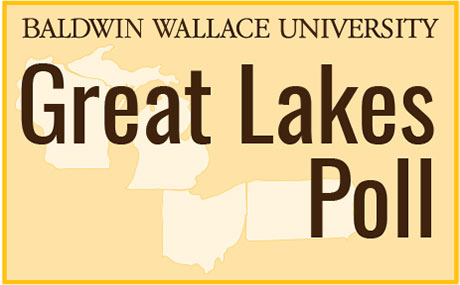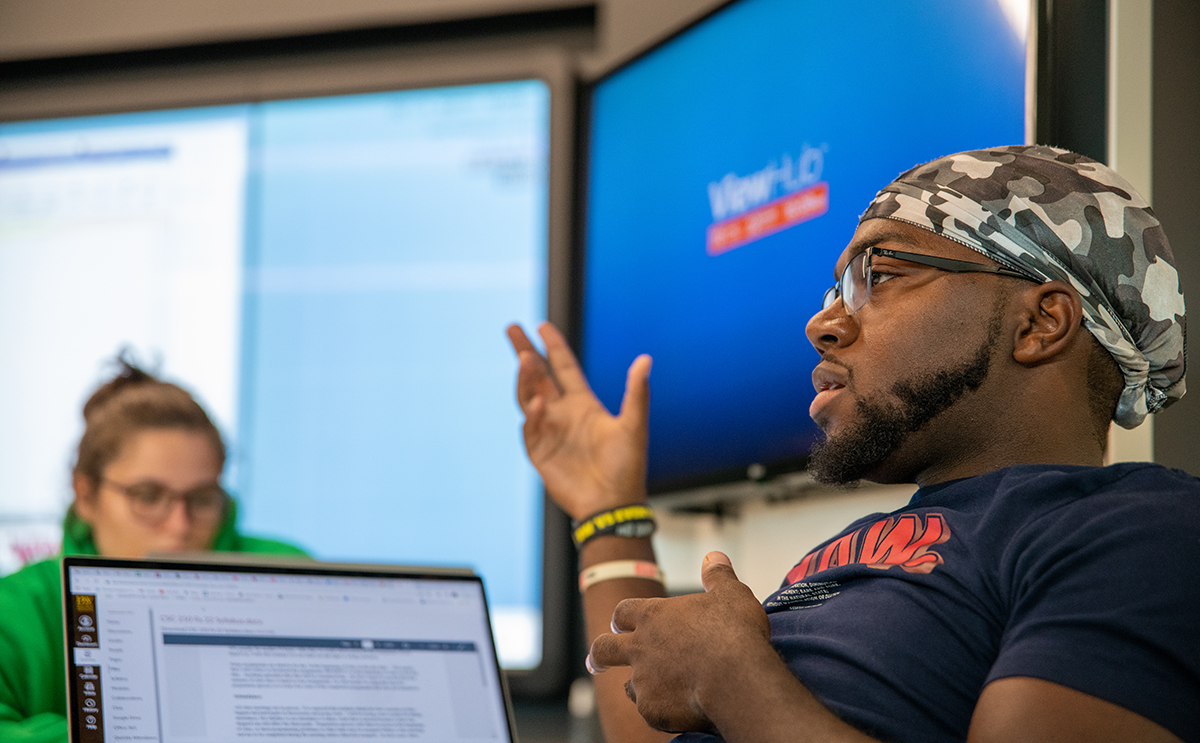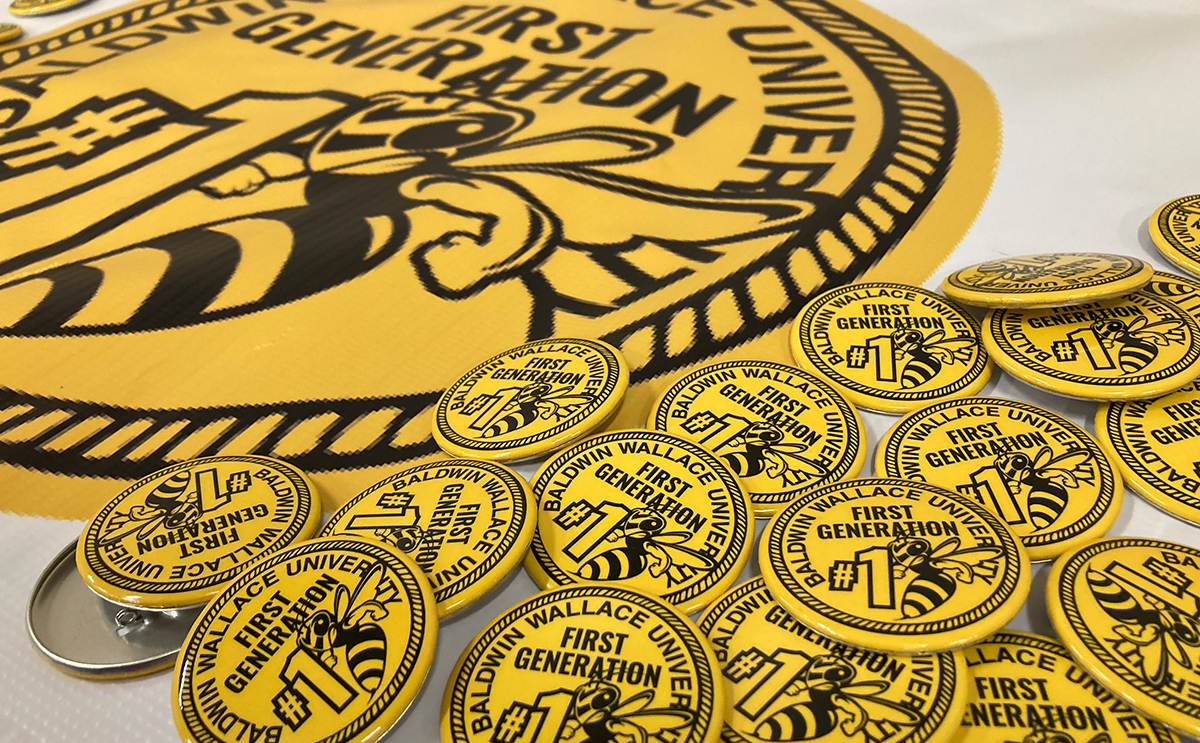Eye-opening results in new BW survey of voters in four key Midwest states
 Results
from
a
new
Baldwin
Wallace
University
Great
Lakes
Poll
offer
an
intriguing,
early
election-year
snapshot
of
public
opinion
in
four
key
Midwest
states.
Results
from
a
new
Baldwin
Wallace
University
Great
Lakes
Poll
offer
an
intriguing,
early
election-year
snapshot
of
public
opinion
in
four
key
Midwest
states.
The survey finds President Donald Trump facing an uphill climb to win over a majority of voters in Ohio, Michigan, Pennsylvania and Wisconsin again in 2020 - especially among women.
The
first
of
four
planned
2020
surveys,
in
partnership
with
Oakland
University
and
Ohio
Northern
University,
provides
a
side-by-side
comparative
analysis
of
voter
views
in
four
states
that
all
went
for
President
Obama
in
2012
and
President
Trump
in
2016
-
three
of
four
by
very
slim
margins.
Spearheaded
by
the
Baldwin
Wallace
Community
Research
Institute
(CRI),
the
poll
questioned
self-identified
voters
on
a
variety
of
topics
including
impeachment,
Iran,
the
President,
the
2020
Democratic
primary
field
and
more.
Among
the
findings:
-
TRUMP
IN
2020
-
Respondents
who
are
'almost
certain'
to
vote
against
President
Trump
led
those
'almost
certain'
to
vote
for
Trump
by
margins
of
10-20
points,
but
about
one
in
10
say
their
vote
hinges
on
the
Democratic
Party's
nominee.
(see
Q2).
- WIDE GENDER GAP - Women are more likely to say they are 'almost certain' to vote against Trump (10-12 points higher), while men are consistently higher in support for the President (see Q2).
Analysis: "The difference in women's lack of support for Donald Trump will be critical to the chances of a Democratic nominee winning these states. This follows the trend of women supporting Democratic candidates in the 2018 Congressional midterms that resulted in a Democratic majority being elected to the House." - Dr. Tom Sutton, Baldwin Wallace University
- DEMOCRATIC CHALLENGERS - A plurality of Democrats and Democratic-leaners prefer Joe Biden for the Democratic nomination, except for Wisconsin, where Bernie Sanders is ahead (see Q9).
- THE BLOOMBERG FACTOR - Could Michael Bloomberg be a compromise candidate? He ranks fourth among Democrats and Democratic-leaners in all four states (see Q9).
Analysis: "Once again, the Democratic Party is in a difficult position. More progressive voters favor Bernie Sanders and Elizabeth Warren and dislike Joe Biden. More centrist voters favor Biden and dislike Sanders and Warren because they believe Biden is more likely to win over the independent voters. This schism could create an opportunity for Michael Bloomberg to thread the needle, and he has the money to do it." - Dr. Lauren Copeland, Baldwin Wallace University
- IMPEACHMENT - A plurality of respondents in each state 'strongly' or 'somewhat' support the removal of President Trump from office through the Senate impeachment trial, ranging from about 47% in Ohio to about 50% in Michigan and Wisconsin (see Q27).
- ISSUES THAT MATTER MOST - Economic, healthcare and security issues are the top three concerns among registered voters in all four states (see Q5). Respondents approve of President Trump's handling of the economy but disapprove of his handling of healthcare, the environment, immigration and foreign affairs (see Q16-Q22).
Analysis: "Voters give President Trump high marks for the economy, but disapprove of his handling of healthcare, the environment, immigration and foreign affairs. This suggests that if the economy falls out, Trump will face a tough bid for re-election. Of course, much hinges on which candidate wins the Democratic Party's nomination." - Dr. Lauren Copeland, Baldwin Wallace University
- IRAN, SAFETY & RESPECT - A plurality of respondents approves of the killing of Iranian General Soleimani (see Q24) but think Trump's policies in Iran make America less safe (see Q25). A plurality of respondents in each state also believes the "administration's policies have made the United States 'much less respected' around the world," although there are differences by gender and along party lines (see Q22).
- IMMIGRATION - Majorities of respondents across all four states strongly or somewhat agree that "Immigrants are generally good for America's economy" (see Q32) and believe that they don't harm American culture (see Q33). At the same time, respondents are split as to whether "we risk losing our identity as a nation" if "America is too open to people from all over the world" (see Q34).
- ELECTORAL COLLEGE DISSATISFACTION - Majorities of voters in all four states believe presidential elections should be decided by the popular vote, not the Electoral College system (see Q35).
Analysis: "That respondents show a willingness to ditch the Electoral College is particularly surprising given the importance of these states to presidential campaigns because of the controversial institution. Yet, large majorities have concerns about the process - from how votes are determined in each state, to the fact that the winner of the presidency can lose the national popular vote." - Dr. Robert Alexander, Ohio Northern University
- SOCIAL MEDIA DISTRUST - Democrats, Republicans and Independents agree that social media use has increased the risk "that foreign powers might interfere in the United States' elections" (see Q47).
Analysis: "These responses indicate that citizens are accepting the true impact of foreign influence via social media on our election process. The risk to our democracy is real. This means citizens are now sifting through media content trying to determine authenticity and source, which could lead to political apathy and lower turnout." - Dr. Terri Towner, Oakland University
Links to full comparative data set, detailed methodology and contacts:
- Questions, Full Data Report & Methodology (pdf) + Addendum: Sample sizes for Q 9, 10 & 11 (pdf)
- BW Great Lakes Poll Main - Topline, collaborating academic experts, media contacts and backgrounder
- Community Research Institute



